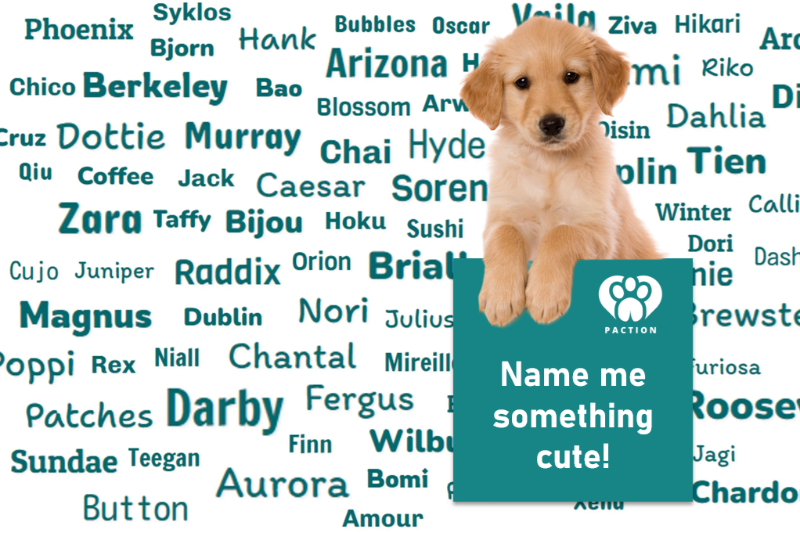Mudi
Find Mudi Breeders Near You
Connect with certified breeders who have Mudi puppies available.
Find Mudi BreedersGet to Know Mudis
- One of the Rarest Herding Breeds: Even in their native Hungary, Mudis are uncommon, with only a few thousand worldwide. Their rarity makes them highly prized by enthusiasts who value their working ability and unique personality.
- Mudis Can Perform Multiple Jobs: Originally bred for herding, they’re also excellent watchdogs, vermin hunters, and loyal companions. This versatility makes them ideal for active homes and farms where a multi-talented dog is needed.
- Distinctive Coat: Their coats are both practical and eye-catching. Their wavy or curly fur repels dirt and weather, requiring minimal grooming. Mudis also come in a wide range of colors—including black, brown, white, and even merle.
- They’re Fearless: This is true even with animals much larger than themselves. Historically, Mudis would confidently herd cattle, charge into thick brush after wild boars, and confront threats to their flock without hesitation. This bravery is still a hallmark of the breed today.
- Largely Unknown Outside Hungary Until Recently: Despite their long history, the breed only gained American Kennel Club recognition in 2022. As a result, they’re just beginning to gain attention in the U.S. and other countries for their intelligence and agility.
Breed History
The Mudi is a rare and versatile herding breed from Hungary, developed in the 18th century through natural selection from local herding dogs, likely including the Puli, Pumi, and German Spitz-types. Bred for function over form, Mudis were valued for their intelligence, agility, and bravery, excelling at herding livestock like sheep and cattle, as well as guarding farms. The breed was formally recognized in 1936 by Dr. Dezső Fényes but nearly disappeared during World War II. Post-war efforts preserved the breed, though it remains uncommon even in Hungary. Known for their high energy and trainability, Mudis today are used in herding, dog sports, and search and rescue. The breed gained full recognition by the American Kennel Club in 2022, helping raise its international profile.
Personality and Behaviour
- Loyal & Affectionate: Mudis are deeply devoted to their families and often form a strong, almost velcro-like bond with their people. They enjoy being close to their humans and tend to be happiest when involved in daily activities, whether that’s working, training, or just spending time together.
- Alert & Protective: Naturally watchful and quick to respond, Mudis are excellent watchdogs. They’re not overly aggressive, but they’re confident and won’t hesitate to bark or step in if they sense something unusual. Their protective instincts make them vigilant without being overly reactive when properly socialized.
- Energetic & Intelligent: With a sharp mind and high energy levels, the Mudi thrives on activity and mental stimulation. They excel in problem-solving, love to learn new tasks, and do best when given a job or structured activity. Without enough engagement, they can become bored, vocal, or develop unwanted behaviors, so they need both physical and mental outlets every day.
Care
- Grooming: Their coat is self-cleaning and low-maintenance, requiring brushing just once or twice a week. Occasional baths and basic care like nail trimming and ear cleaning are usually sufficient. Shedding is moderate and seasonal, with heavier shedding in spring and fall.
- Training Needs: Highly trainable and eager to please, Mudis excel in obedience and dog sports. Early socialization and consistent, positive reinforcement are key to managing their strong will. Without mental challenges, they can become bored and develop unwanted behaviors.
- Exercise: High-energy and active, Mudis need at least 60–90 minutes of physical exercise daily to stay healthy and happy. They thrive on mentally engaging activities like herding, agility, fetch, or advanced obedience work. Without enough exercise, they can become restless, vocal, or destructive, so they do best with active families or jobs to do.
Mudi Summary
What to ask your breeder?
Here's a short summary of what you should be asking your breeder:
Mudi Health Testing
| Screening | Considerations |
|---|---|
| Hip Dysplasia | One of the following: OFA Radiographic Hip Evaluation PennHIP Evaluation. Results registered with OFA. |
| Elbow Dysplasia | OFA Radiographic Elbow Evaluation |
| ACVO Eye Exam | ACVO Eye Examination. Results registered with OFA. |
| Patellar Luxation | Veterinary Evaluation of Patellar Luxation. Results registered with OFA. |
| Cardiac Evaluation | One of the following: Basic Cardiac Exam Advanced Cardiac Exam |
| Autoimmune thyroiditis | (Optional) Autoimmune Thyroditis Evaluation from an approved Lab. Results registered with OFA. |
| Multiple Drug Sensitivity | (Optional) DNA-based MDR1 test from an approved laboratory; results registered with the OFA. First Generation Offspring of tested dogs eligible for Clear By Parentage |
| DNA Repository | (Optional) Participation in the OFA/CHIC DNA Repository (DNA Bank) |
How Much Does It Cost to Own a Mudi Per Year?
Determining the cost of owning a Mudi is essential for responsible dog ownership. Use our calculator to estimate expenses, including food, grooming, veterinary care, and more.
The Ultimate Dog Cost Calculator
 Calculate Now
Calculate NowFrequently Asked Questions About Mudi
When you talk to a breeder, you're not just asking “do you have available Mudi puppies?” You're looking for a match in the process of rehoming a dog. As a prospective dog owner, you are assessing how predictable the dog's health, temperament, and long-term welfare will be and whether the breeder's practices reduce avoidable risk.
You should engage in a conversation about the following topics:
- Which health tests and genetic screening do you do specifically for Mudi, and can I see the results?
- What do you do if a puppy develops a serious genetic condition? What contract, policies and support do you offer as a breeder?
- How are puppies raised from birth to 8+ weeks? Ask about socialization, philosophies on early neurological development, handling, and exposure.
The real cost of a dog isn't just the puppy price. After year one, the cost of a dog includes the predictable annual costs + the unpredictable “risk costs.” Your goal is to make the cost legible before you commit, as one of the top causes of surrendering a dog is not being able to afford the dog in later years.
To help you assess these costs, Paction has created the Ultimate Cost Calculator. You can also read an article written by a Paction breeder on why a prospective dog owner should focus on the ongoing costs of dog ownership and not “how much” the puppy costs.
Every dog breed has certain health issues that tend to occur more often, but what matters most is how predictable and preventable those risks are. For many breeds, common concerns include inherited conditions (such as orthopedic, eye, or cardiac issues) as well as lifestyle-related challenges like weight management, dental health, skin or ear problems, and anxiety.
Responsible breeders help reduce inherited risk through appropriate health testing, careful selection of breeding pairs, and transparency about family history. To understand more about responsible breeding programs that prioritize health and genetic screening of breeding pairs, check out Making Science Simple: Canine Genetics for Puppy Shoppers.
As an owner, you play an equally important role. Consistent preventive veterinary care, proper exercise and enrichment, healthy nutrition, and early screening can significantly improve long-term health outcomes.
Whether a Mudi is right for you depends less on the breed itself and more on how well its typical energy level, temperament, and care needs align with your daily life. Important factors include your schedule and activity level, living environment, household dynamics (such as children, other pets, or allergies), and tolerance for noise or independence. Long-term fit also comes down to maintenance like grooming, training needs, and how often you travel or rely on outside dog care.
Use Paction's Dog Breed Matchmaker and Pup Time Estimator to find out more about what dog is right for you.


